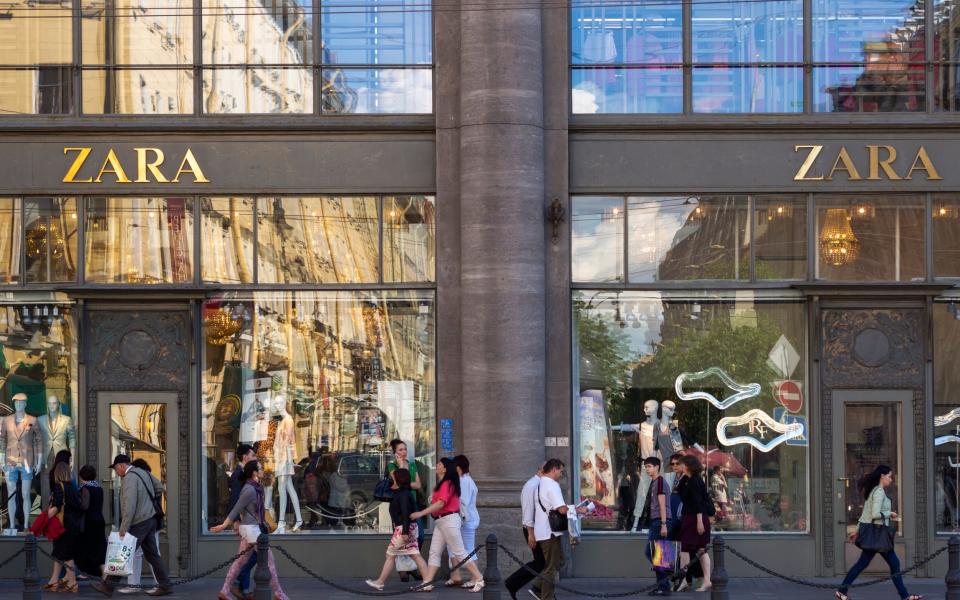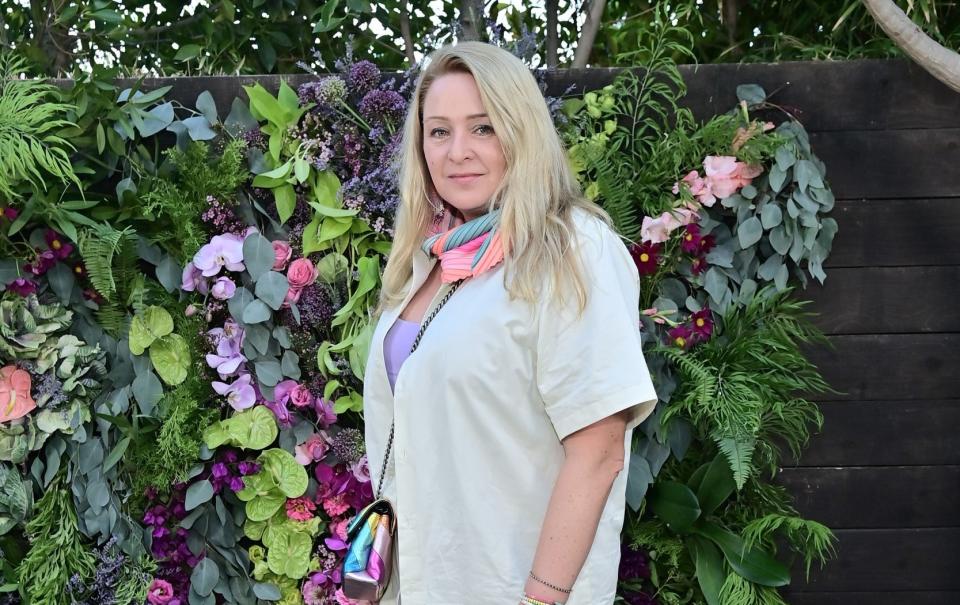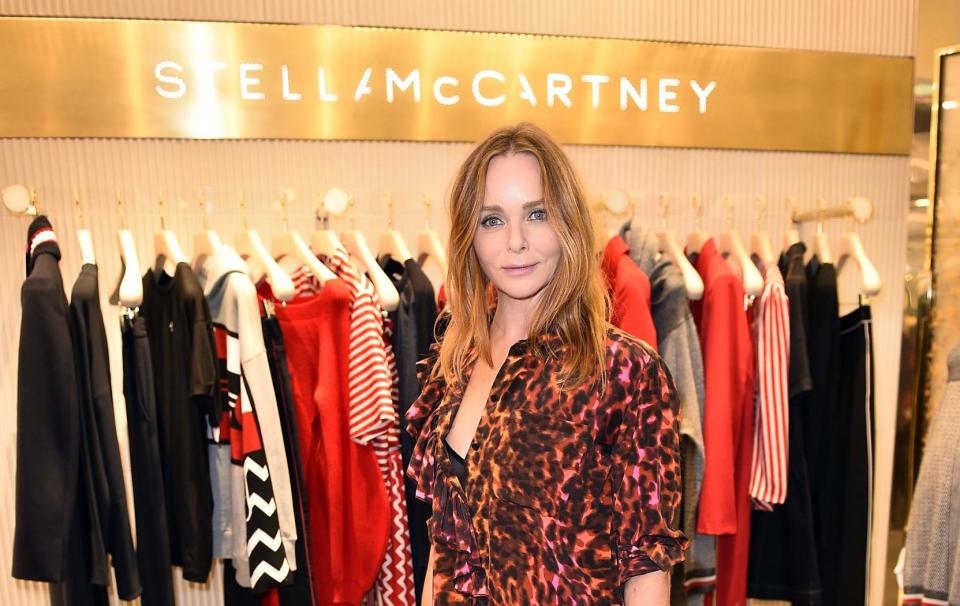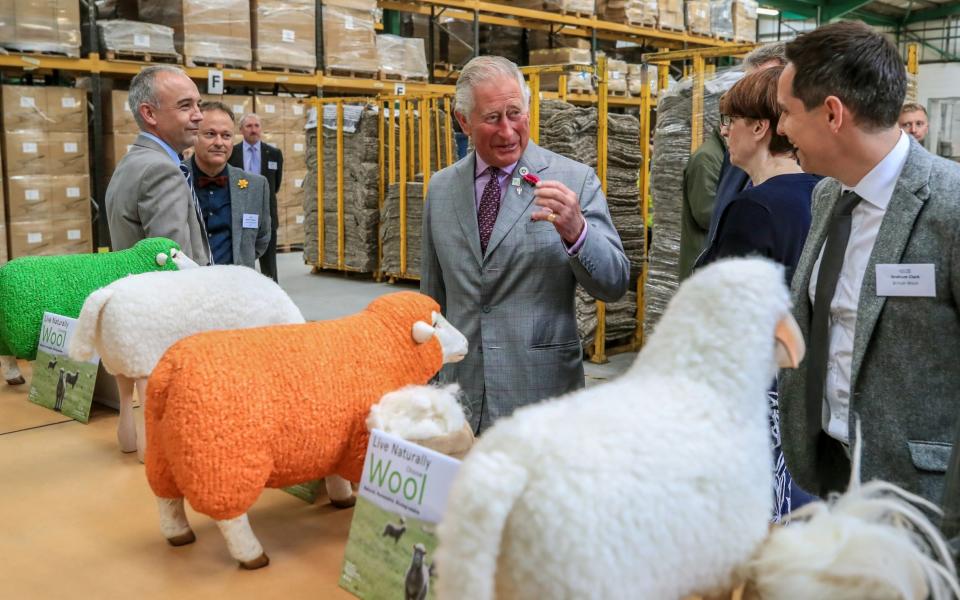Is vegan fashion a greenwashing con?

Ratty hemp dresses and fraying cork shoes have been replaced by buttery-soft over-the-knee boots, slinky silk minidresses and cross-body handbags in ice-cream colours. Vegan fashion has finally made it big thanks to a new generation intent on purging meat from their diets and their wardrobes – and the fashion industry has responded with an array of desirable, animal-free collections.
But look behind the curtain and it becomes clear that innovation sometimes causes more problems than it solves.
Vegan leather is now ubiquitous and available at brands like Marks & Spencer and Zara, as well as most mid-range British labels.
The fashion industry is understandably keen to promote it as an exciting new alternative – partly because leather goods generate a lot of money but also because selling it is an easy way to show your ethical credentials
The truth, however, is that while the methane produced by cows means real leather isn’t great for the planet, the crude oil used to make its replacement is arguably much worse.
“It’s a real hot potato,” says Suzanne Lee, the founder of biotech company, Biofabricate. “In fashion particularly, we’re always looking for a shorthand, and vegan leather is now being touted as an environmentally friendly alternative to animal leather, but unfortunately a lot of companies have not been transparent about what that means.”

Lack of regulation
For all the new innovations, not much has changed since the days of pleather – today most vegan leather is still made from either polyurethane (PU) or polyvinyl chloride (PVC), both of which are incredibly polluting. And even brands that say they are using plant-derived materials are often making as little as 25 per cent of their product from, say, cactus or pineapple skin, and the rest from plastic. The fashion industry remains deeply unregulated, so there is little pushback on this.
“This is greenwashing, 100 per cent,” says Lee. “It makes me very angry, but we see it on a daily basis. We often have brands coming to us with this new vegan leather they have been offered and we have to tell them it’s basically plastic. I would be as bold as to say that vegan fashion is the main area where greenwashing is a concern.”
Sadly, these companies are marketing their goods to consumers who – by and large – are doing their best to make a positive impact. This is particularly true in January when, thanks to the popularity of the plant-based eating initiative “veganuary”, searches for vegan fashion are higher than at any other time of the year.
“It’s a shame, because so many kids get excited about vegan diets and want to buy a vegan handbag, and are horrified when they find out it’s mostly plastic,” says Lee.
Shades of grey
The problem begins when people conflate their eating habits with their clothing consumption. “We have to educate people to think about fashion in shades of grey rather than black and white,” says Lee. “Vegan eating is simple – not least because the ingredients are listed. We don’t get that with materials, so there is a lot of opportunity to hide what is lurking in products.”
She cites a few companies that purport to make cactus or apple leather accessories, but which – according to Lee – base little of the material on actual plant products, instead relying overwhelmingly on plastic, which is far more polluting.
But because these ‘alternative leathers’ are only part plastic, have been processed and contain multiple different elements, it is also difficult to recycle them. This means a lot of discarded vegan leather will likely end up in landfill.
For some people that is still better than contributing to the slaughter of animals or the creation of materials made from raw and environmentally damaging fossil fuels – but the lack of transparency means that few consumers are making this choice in an informed way.
Dispelling the myths
One company trying to fight back on some of the disinformation out there is Pangaia. This innovative Los Angeles based brand is scientifically very advanced and has become one of the forerunners in vegan fashion. It also has a policy to give customers as many details as possible.
“Right now about 60 percent of all fashion has some synthetic in it, and synthetic is pure fossil fuels,” says Pangaia COO Amanda Parkes. “We don’t want to add to that, and we want to ensure that all virgin content is ethical and no animals have died – but we know that the solutions are not always perfect so we tell the customer as much as we can.”

“Nothing is simple,” agrees Lee. “The dairy industry is very polluting but the truth is that much of the leather that fashion uses comes from the hides of cows that were always going to be slaughtered for food – if you want to make a difference, persuading someone to eat less meat will do more than persuading them to buy a plastic handbag.”
Which means ensuring that – for now – leather doesn’t go the way of fur. Fur was the first animal product to attract global attention thanks to the headline-generating efforts of Peta, and it is now rightly frowned upon in nearly all circles. But faux fur – which is typically made from polluting synthetics – really isn’t much better.
And while there are a few companies like Maison Atia and House of Fluff, as well as Stella McCartney’s recently developed KOBA Fur-Free Fur, that are making faux fur from green-friendly plant products – none are particularly affordable.
“Cheap fake fur is essentially plastic,” says Lee. “It’s a fossil polymer that comes from crude oil and is toxic and nasty and goes straight to landfill. Anyone who cares about the planet should never buy it.”
British wool
When it comes to wool, vegan options are also a bad idea, not least because the real thing is one of the greenest materials you can buy. Even Stella McCartney – who never uses leather or silk in her designs – will use responsibly sourced wool.

Dana Thomas, the acclaimed author of Fashionopolis: The Price of Fast Fashion and the Future of Clothes agrees “Wool is not only fine, it’s actively great, because when it wears out you can compost it safely – and in my book, that’s important,” she says.
King Charles and publisher Nicholas Coleridge even led a campaign to get people wearing more wool in the name of saving the planet from plastic derivatives. “It is frankly insane that people have been wearing synthetic jerseys instead of wool ones,” says Coleridge.
“Not only is it far greener than the alternative – but the energy crisis means wool is more important than ever because it keeps you twice as warm. This was widely understood in mediaeval Britain, but somehow got forgotten in recent decades.”
Tamara Cincik, the founder of the consultancy Fashion Roundtable, has been a vegan for 20 years and actively campaigns for people to wear more wool. “One of the most important things you can do for the planet is buy clothes that have been produced close to home,” she says, “I know I’m doing something good when I buy products made of British wool.”

The silk debate
Then there is silk, which gets far less airtime despite reports from animal rights groups about worms being boiled alive in their cocoons. There are a few planet-friendly plant-based materials that mimic the feel and drape of silk, like Bolt Threads – but they remain almost exclusively available in the luxury sphere.
“To be honest, because silk is a tiny percentage of the overall market, stopping it won’t do much other than put some people in low income countries out of work – most of them being women,” says Lee. “When you look at the amount of polyester being made each day and the amount of silk, I don’t think the latter is the right place to concentrate our efforts.”
Lee has here touched on the biggest issue of all – the sheer quantity of garments being created by the industry every day. Unfortunately, because fashion exists to sell products, it is easier to tell people worried about the planet to buy a pair of vegan boots than it is to tell the truth: that not buying anything remains by far the most environmentally friendly choice you can make.


